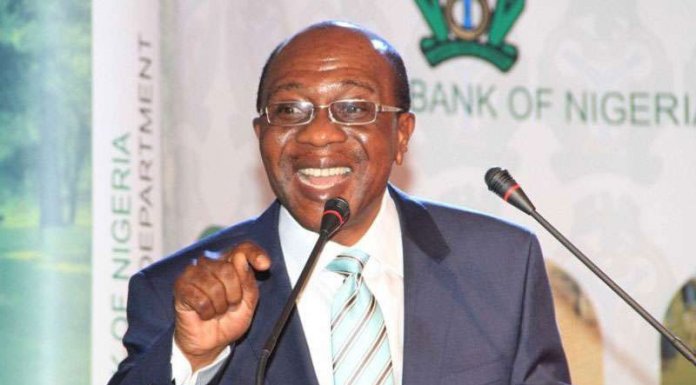More issues have continued to emerge from his recent address before the foreign envoys at the Federal Ministry of External Affairs, where he, the Governor of Central Bank of Nigeria (CBN), Godwin Emefiele, went to address heads of missions to Nigeria earlier in the week.
During his almost one hour address bordering on the state of the nation’s monetary policy and implementation especially as it regards the new naira notes, he claimed that Nigeria has the sixth best ePayment system in the world.
Very embarrassingly, Emefiele made this infamous claim in the presence ambassadors from Europe, Asia and the Americas from where the economy copied its currently wobbling cashless policy.
Fact-check on his claims showed that Nigeria is nowhere near the top 30 in the world.
Besides, at peak hours of use, over 50 per cent of ePayment transactions fail, thus putting victims on the line to losing their money if they fail to pursue same with random filling of forms.
Additional checks showed that ePayment system is dependent on steady power which does not exist in Nigeria; fixed broadband and strong mobile internet which are shaking in Nigeria; high percentage cashless penetration which he even revealed that is currently between 60 and 64 per cent; nationwide internet coverage which the country is yet to attain amongst others.
The term electronic payment can be referred narrowly to e-commerce- a payment for buying and selling goods and services offered through the internet, or broadly to any type of electronic funds transfer (Massimo & Garcia 2008).
Ayodele (2007) defined e-payment as electronic transfer of cash via online transactions for business-to-business (B2B), business-to-consumer (B2C), person-to-person (P2P), and most recently administration-to-consumer (A2C) purposes. A2C payment addresses the payment of taxes toward the government.
Humphrey, Kim & Vale (2001) defined e-payment as cash and associated transactions implemented using electronic means. Typically, this involves the use of computer networks such as the internet and digital stored value system. This system allows bills to be paid directly from bank, and without the use of writing and mailing cheques.
Guttman (2003) defined e-payment as credit card details, or some other electronic means, as opposed to payment by cheque and cash. It is also defined as a payer’s transfer of monetary claim on a party acceptable to the beneficiary (Worku 2010).
Electronic payment can also be defined as convenient, safe and secure methods for payment of bills and other transactions by electronic means such as card, telephone, the internet, EFT and etc.
Electronic payment gives consumers an alternative to paying bills and debts by cash, cheque, money order etc. Its main purpose is to reduce cash and cheque transactions.
In the Nigeria context, e-payment is effecting payments from one end to another and through the
medium of the computer without manual intervention beyond inputting the payment data, it is the ability to pay the suppliers, vendors and staff salaries electronically at the touch of a computer button (Agba, 2010).
Types of E-payment
In Nigeria context, there are two types of e-payment namely;
i. End to End processing: Here, all the processes from approvals to the receipt of value by the
beneficiary are done electronically.
ii. Manual e-payment or use of Mandate: It is the mixture of manual and electronic process where the available infrastructures cannot support the End to End processing.
However, there are many forms of e-payments these include cards, internet mobile payments, financial services kiosks, biometric payments, electronic payment networks.









